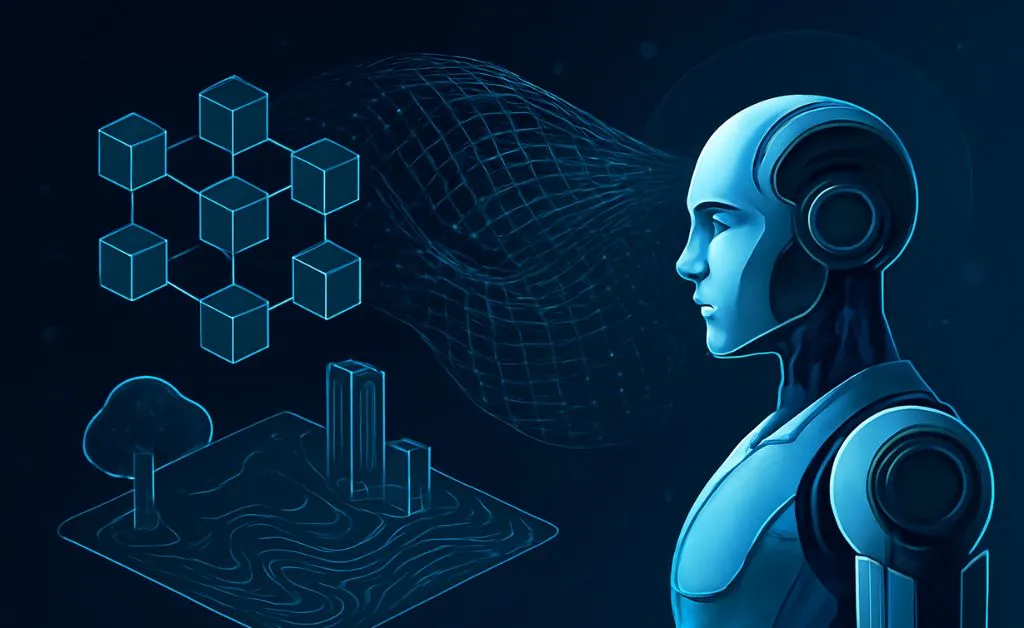
Auki - Revolutionizing Spatial Computing with Blockchain
Auki is a revolutionary project in the rapidly growing field of Spatial Computing. This decentralized physical infrastructure network (DePIN) leverages blockchain technology to enable devices and AI models to perceive and interact with the physical world. By allowing AI models to share spatial data and computational resources through Auki's unique Poshmesh Protocol, the project facilitates enhanced collaboration between machines, allowing them to understand real-world environments more effectively.
1. Key Features of Auki:
Poshmesh Protocol: Auki’s proprietary protocol enables devices and AI models to exchange spatial data in real time, improving their ability to understand and interact with the physical world. This real-time data sharing is a breakthrough that opens up new possibilities in sectors such as robotics, IoT, and AR/VR.
Decentralization and Blockchain: Utilizing blockchain for data sharing ensures trust, security, and transparency, empowering users to take part in the system through Proof of Stake (PoS) mechanisms. Auki’s decentralized approach minimizes reliance on centralized cloud systems and allows anyone with compatible hardware to contribute and earn rewards.
Token AUKI: The AUKI token is central to the ecosystem, serving as both a utility and governance token. Users who contribute resources, such as processing power or sensor data, can earn AUKI tokens. Additionally, AUKI holders can participate in governance decisions regarding the future of the network, providing a decentralized approach to decision-making.
2. Real-World Applications of Auki:
Auki’s technology extends beyond theoretical applications into real-world use cases, making it relevant for businesses and individuals today:
Retail Optimization with Cactus AI: One notable application of Auki’s spatial computing technology is through Cactus AI, a tool that helps retailers optimize their store layouts. By using spatial data, Cactus AI enables store owners and employees to precisely track and manage product placements, ensuring that items are always stocked and located correctly. This enhances both operational efficiency and the customer shopping experience.
Smart Cities & IoT: Auki’s ability to process and share spatial data in real-time opens up opportunities for smart cities and IoT systems, improving urban infrastructure management, traffic control, environmental monitoring, and more. The decentralized nature of the network allows for cost-effective, scalable solutions for smart city projects.
Robotics & Autonomous Systems: Robots equipped with spatial awareness can navigate complex environments more effectively. Auki provides the necessary tools for robots and drones to perform tasks with greater precision, from warehouse management to autonomous delivery systems.
3. AUKI Tokenomics & Market Insights:
Tokenomics:
Total Supply: 10,000,000,000 AUKI tokens
Utility & Governance: AUKI is used for staking and governance, ensuring that token holders can participate in crucial decisions regarding the platform's future.
Allocation:
Ecosystem Rewards: 30%
Token Sale: 22.7%
Foundation: 18.7%
Team: 15.6%
Token Infrastructure: 7%
Acquisitions: 6%
Market Data:
Current Price: Approximately ₫593 (~$0.0228 USD)
24h Trading Volume: ~ $32,875 USD
Market Cap: ~$433,252 USD
Circulating Supply: ~1.8 billion AUKI
The Auki network has witnessed steady growth, and its low market cap offers significant upside potential. Investors and developers looking for a decentralized platform in spatial computing will find Auki a promising project.